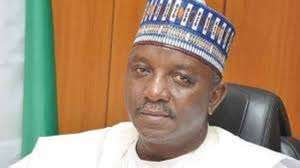Nigeria has been ranked the world’s number one in terms of provision of electricity to her people. What this means is that the west African nation has the lowest electricity tele density, according to the World Bank in a recent report.
The Bretton wood, US based bank made this known in a statement on Monday, where it said Nigeria tops the list of 20 countries with the largest population of over 580 million people lacking access to electricity.
Two years ago, Nigeria accounted for 90 million unelectrified people, followed by the Democratic Republic of Congo with 70 million, and Ethiopia (which replaced India in third place in 2019) with 58 million people.
The World Bank’s revelation came on the heels of a recent disclosure by Vice President Yemi Osinbajo that the federal government spent over N1.5 trillion on electricity generation in the last two years.
In spite of this, records provided by the Nigerian Bureau of Statistics, NBS indicate that the total power generation hovers around less than 4000 megawatts.
The President Muhammadu Buhari’s administration’s promise to grow generation to 7,000MW by 2021 had been farfetched as the country continues to wallow in darkness, while the breakdown of power grids across the country is a normal occurrence, according to experts.
According to the World Bank, erratic power supply has cost the country over $29 billion in annual income.
It also said that the number of people without access to electricity in the world declined from 1.2 billion in 2010 to 759 million in 2019. Out of this figure, about half of them live in fragile and conflict-affected settings such as Nigeria.
The statement, quoting the recently released Tracking SDG 7: The Energy Progress report, said that unless efforts are made towards significantly Improving power supply, access to affordable, reliable, sustainable, and modern energy by 2030 in these countries remains elusive.
The bank said “According to the report, significant progress has been made since 2010 on various aspects of the Sustainable Development Goal (SDG) 7, but progress has been unequal across regions,” the statement reads.
“While more than one billion people gained access to electricity globally over the last decade, COVID’s financial impact has made basic electricity services unaffordable for 30 million more people, the majority located in Africa.

“Nigeria, the Democratic Republic of Congo and Ethiopia had the biggest electricity access deficits, with Ethiopia replacing India in the Top 3.”
Some countries have showed sustained effort to improve electricity supply to their peoples, the bank said in the report, noting that “Among the 20 countries with the largest access deficits, Bangladesh, Kenya, and Uganda showed the greatest improvement since 2010, thanks to annual electrification growth rates in excess of 3 percentage points, driven largely by an integrated approach that combined grid, mini grid and on-grid solar electrification.”
It ranked Nigeria among the top 20 countries with most people lacking access to clean fuel and technologies for cooking.
According to the institution “Of the top 20 countries with greatest number of people lacking access to clean fuel and technologies for cooking, 10 are located in Sub-Saharan Africa (Nigeria, Ethiopia, Democratic Republic of the Congo, United Republic of Tanzania, Uganda, Kenya, Mozambique, Madagascar, Ghana, Niger),” the statement adds.
“Six are in Eastern Asia and South-eastern Asia (China, Indonesia, Philippines, Myanmar, Viet Nam, the Democratic Republic of Korea) and four are in Central Asia and Southern Asia (Afghanistan, Bangladesh, India, Pakistan),” the report said.
Discover more from The Source
Subscribe to get the latest posts sent to your email.







